- Home
- Karina Halle
Old Blood Page 2
Old Blood Read online
Page 2
Page 2
“Who are you?” I asked, wanting an answer this time. “Where do you live?”
“I live in the lake,” she said.
I giggled and put my hands on my hips. “You’re a liar. No one lives in the lake. ”
Not even monsters, I thought. That was make believe.
She shook her head and began to walk through the mud. Her feet never left any footprints.
Was this make believe too?
“Where do you live?” I asked again as she skirted past me and walked faster, heading for the side of the house. I followed after her, my eyes glued to her feet that never got dirty, that never made a mark.
“I live in the lake,” she said again, as if I didn’t hear her.
As she reached the front and the lake loomed before us, the water calmed instantaneously. Like there was a switch that made the currents move and stop.
I knew the girl didn’t live in the lake, but I also knew not to argue with her. She was the first girl my age that I had ever talked to. I wanted her to stay around and play with me. I wanted to give her licorice from the washbasin and ask her to stay for cake but I quickly realized the lake was the only thing she aware of now.
“Don’t go,” I cried out after her, my long legs catching up. “Please. ”
“I have to go home now. He’ll find me here. ”
“Who?” I asked. I was walking beside her now and struggling to keep up. Though I was tall, she was a bit taller, older and more determined. Her fair hair bounced around her face and her aqua eyes were focused on the water. She didn’t blink at all.
“Where are you going?” I asked, stopping just as my own shoes almost met the shoreline.
She didn’t answer and she didn’t stop. She walked straight into the lake, effortlessly, as if the water were just air. Her clothes didn’t even soak in the liquid. The water slid around her like a shiny curtain and within seconds her head disappeared. She was in the lake.
I took off my shoes and tossed them onto the grass behind me, thinking not to get them wet for whatever reason, and then I went in the lake too. It was cold as January and deeper than anything, not the warm shallow water it should have been. Within seconds my body had seized up from the temperature and my feet couldn’t find the muddy bottom. My head was above water, then my nose, then nothing at all. I sank and sank and sank until I found my blonde friend again.
At first I thought she was grabbing hold of my leg. Perhaps she was going to pull me up to the surface. My lungs hurt and my eyes were burning and I needed air more than anything.
But in the last moments before I lost consciousness I realized she wasn’t grabbing me.
She was bumping into me.
She was upright, swaying in the murky water like a reed in the current. Her hair floated around her like a golden net. At her feet, at her white shoes that were now muddled with scuffs and dirt, were thick, rusted chains. They wrapped around her slender ankles and thin socks and kept her down, anchored to the bottom.
She looked dead until she raised her head at me.
My own face looked back.
I screamed and a rush of water filled my lungs within seconds. The watery world became shadows.
The next thing I remembered was waking up in my own bed, covered in a thick quilt, a mug of hot tea beside me.
I was in my tiny bedroom. It was nighttime, but I didn’t know when. All I knew is that my mother was in the middle of speaking to me, as if I had been speaking to her too. It was boring stuff, something about a church and a minister.
Downstairs I heard cupboards slamming shut, a sure sign that papa was angry. Was he angry at me? What had happened?
My mother sensed my apprehension because she smoothed the hair off my head.
“You musn’t talk about that girl anymore,” she whispered. She leaned in close and I caught a whiff of the perfume she only wore on Sundays. Had I been sleeping for a couple of days now?
And the girl. The girl with the blonde hair and the boxy dress and the white shoes that wouldn’t smudge until she was dead at the bottom of the lake. She had been real. She wasn’t a dream. I had seen her, hiding behind that tomato plant.
“He’s being good not using the belt,” she continued. “You need to keep being good too. ”
I wanted to say so much, but I couldn’t. I had no idea what I had been babbling about in my half-dead delirious state. There was no doubt my parents would have chalked any mentions of the girl to over-imagination, lies, and possibly the Devil’s work.
A few days later, when my parents deemed me as normal and no longer a threat to myself, we heard news from a local woodcutter who was passing through. Greta Lund, the young daughter of one of papa’s worshippers, had been found dead at the bottom of the lake. A man had been fishing and his hook got caught on her net of hair. There was no mention of chains but I knew what I had seen. I had seen her and I had seen what had really happened to her. She had been murdered. Was it the blackened man? I didn’t know at the time. But I knew then that what I saw was real and not real all at once. I was special. And not in a fortunate way.
CHAPTER TWO
The second time this sort of thing happened to me, I was a few years older and could no longer blame my mother’s stories for giving my gift fire. She had stopped telling them many years ago. It was the first time my special sight caused loss – I no longer had that closeness with my mother.
I had started going to school in Ullapa, the closest town and would get a ride in every morning with our neighbor Arstand and his son Stäva. As you may recall, Arstand was the goat farmer who found me, along with my mother, floating in the lake when I was six. That explained why Arstand was always a bit jumpy with me, as if I was going to pop up and say “boo!” at any moment.
But he tolerated me enough to fit me in his new vehicle and take me to school. My parents were still behind the times and my father shunned motor vehicles as being unnecessary idols and symbols of gluttony. I suppose he was right, but it was still a convenient way to get around.
Stäva had ended up being my only, and, by default, closest friend. He was a bit strange and funny to look at but strange suited me just fine. He was small for his age and had ears that stuck out. Arstand called him “elefant. ” It didn’t seem to bother Stäva much though. He had a sunny personality and loved to listen to me prattle on about this and that. He was also quite the adventurer and when we first started playing together we would explore the farm he lived on, climbing up into the haylofts and jumping onto the piles below or feeding the baby goats (when we weren’t chasing them around). My parents weren’t too happy that I was spending so much of my time away from home, but I suppose my mother felt she was in debt to Arstand and after a while they didn’t seem to mind. Perhaps it was a relief to them that someone else was taking care of me.
It was at Stäva’s that I was introduced to more modern conveniences, aside from the car of course. Being a goat farmer was more profitable than being a minister and they had things such as a library and a radio. The library was a great place for me to sink my teeth, especially as I had learned to read at that point, but the radio trumped all. When I was there after school, his father, mother and two younger brothers would sit around the giant radio and listen to broadcasts coming out of Stockholm. I found the news to be boring, except when it touched on the troubles in Europe, but I lived for the plays and radio shows that played after. It was then that I fell in love with acting and the theatre. I couldn’t see the show of course, and I had never seen a performance in my life as church singing didn’t count to me, but I could envision it all in my head like I was there with the actors.
“I’m going to be on the radio one day,” I remember whispering into Stäva’s funny ear. We were sitting on the braided rug in his living room, a place that smelled like a mix of manure, sour milk and home baked bread. It doesn’t sound like a winning combination but it’s funny now how that smell makes me think of home, even thoug
h it wasn’t my home. It’s not that Stäva’s parents were particularly nice to me. Like I noted, Arstand was always watching me carefully. His wife Else was a nice woman but she seemed lost in her head more often than not and spent most of her time working with the goat cheese or doting on Stäva’s younger siblings. I wasn’t a pest to them but I wasn’t loved either. Yet I still had a sense of freedom and hope in their peculiar-smelling place.
With the idea of being an actress in my head, I focused solely on that. I mentioned it once to my parents and ended up getting a belt across my thigh. It didn’t hurt. I was too angry for it to hurt. I was angry at my father for being so close-minded about his daughter’s dreams (for what were we without dreams) and at my mother for never sticking up for me. Ever since the lake incident, when she stopped with her stories, she stopped being my friend as well. It hurt more than anything, more than all the belts, more than the feeling of drowning in that ice cold lake.
So I never mentioned it to my parents again but that did me no good. I should have known they’d investigate where the sinful idea came from and when they found out I’d be listening to the radio I was banned from going to Stäva’s. They didn’t care enough to ban me from seeing him in particular, just that I couldn’t listen to the radio. My ears couldn’t be polluted by foreign ideas. They even had a talk with his parents and to keep peace as neighbors, they agreed. What was it to Stäva’s parents anyway? They didn’t care if I couldn’t listen to the radio. One less child crowding their house.
It didn’t break me, however. I merely became more resolved in my determination that I would be an actress one day. I’d find a way, somehow.
But since I wasn’t allowed to spend too much time in Stäva’s home anymore, we were left to our own devices in the great outdoors. Playing in the hay and harassing goats became tiresome by the time I was nine, so we started going on after school jaunts into the woods.
There was a part of me that was a little chicken over the tall trees and dark paths and I was forever on the lookout for a man with no face. He didn’t show up. But something else did. Something much more horrific.
It was a cool, grey day in early fall. The leaves had just gone from crisp red to the color of soggy wood as they clung helplessly to the branches.
Stäva was walking ahead of me as he did, leaves crunching beneath him. He was two years older and only lately did he start to grow into his age. He often walked ahead, pretending he was a woodland hunter, or perhaps a wily prince, and kept me behind him. I didn’t mind the protection, even if it was from an 11-year old.
I also didn’t mind when he stopped on our walk at one point and took my hand in his. It was the first time I remember feeling the difference between us. He was a boy and I was a girl and that little thrill shot up my arm, the same feelings I imagined when I had listened to the more romantic parts of the radio shows.
I suppose I was so awed by the simple gesture of hand holding that I didn’t hear the howl first. Suddenly Stäva’s grasp tightened on mine and his bright eyes searched the greying woods.
“What is it?” I asked, not used to seeing panic on his face.

 Hot Shot
Hot Shot Maverick
Maverick Love, in Spanish
Love, in Spanish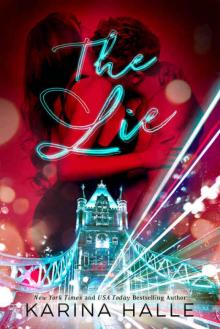 The Lie
The Lie Wild Card
Wild Card Dirty Angels
Dirty Angels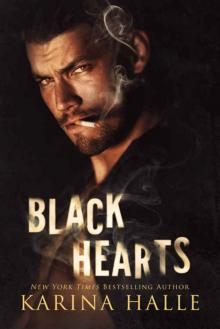 Black Hearts
Black Hearts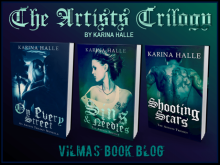 Shooting Scars
Shooting Scars Love, in English
Love, in English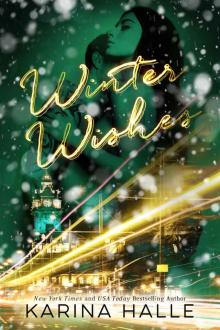 Winter Wishes
Winter Wishes Sins & Needles
Sins & Needles On Every Street
On Every Street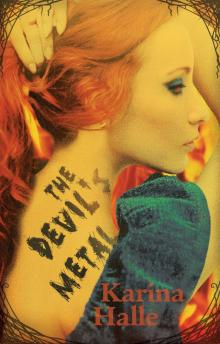 The Devils Metal
The Devils Metal Bold Tricks
Bold Tricks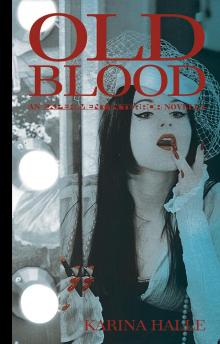 Old Blood
Old Blood The Play
The Play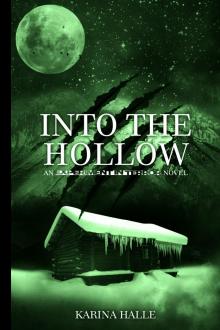 Into the Hollow
Into the Hollow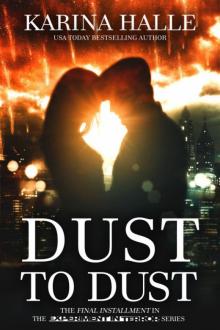 Dust to Dust
Dust to Dust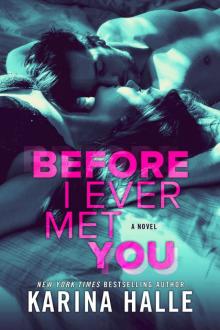 Before I Ever Met You
Before I Ever Met You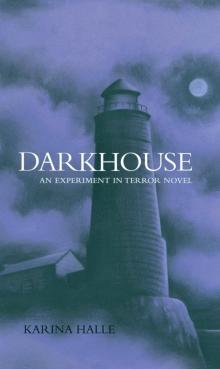 Darkhouse
Darkhouse The Debt
The Debt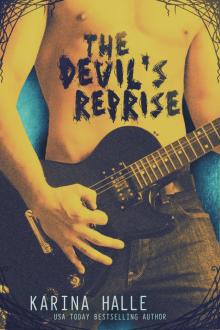 The Devils Reprise
The Devils Reprise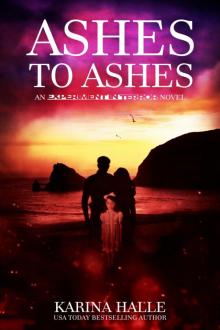 Ashes to Ashes
Ashes to Ashes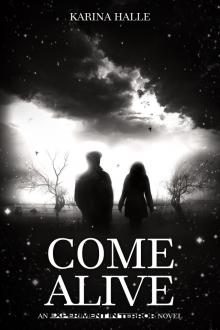 Come Alive
Come Alive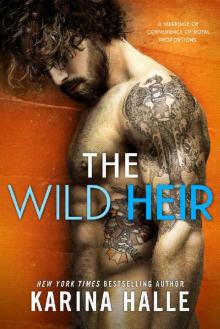 The Wild Heir_A Royal Standalone Romance
The Wild Heir_A Royal Standalone Romance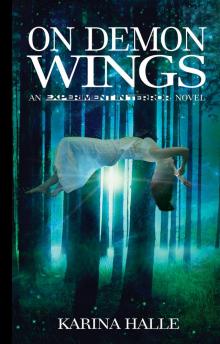 On Demon Wings
On Demon Wings The Royal Rogue
The Royal Rogue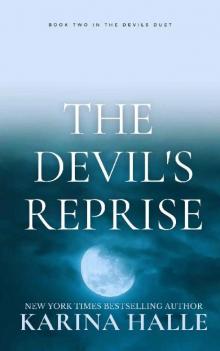 The Devil's Reprise: A Rockstar Romance (The Devils Duet Book 2)
The Devil's Reprise: A Rockstar Romance (The Devils Duet Book 2)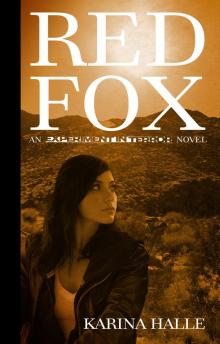 Red Fox
Red Fox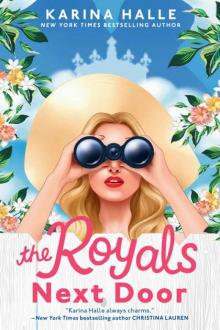 The Royals Next Door
The Royals Next Door After All: A Hate to Love Standalone Romance
After All: A Hate to Love Standalone Romance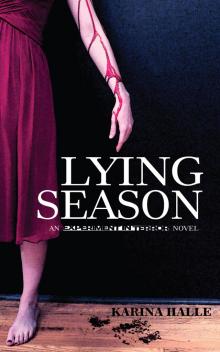 Lying Season
Lying Season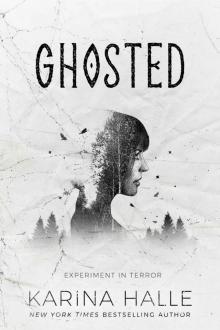 Ghosted: Experiment in Terror #9.5
Ghosted: Experiment in Terror #9.5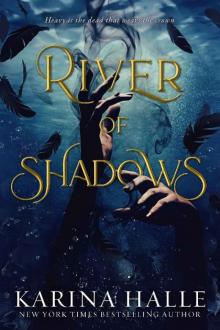 River of Shadows
River of Shadows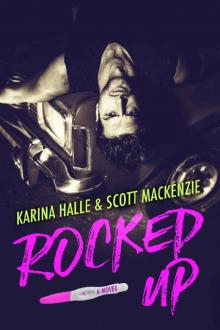 Rocked Up
Rocked Up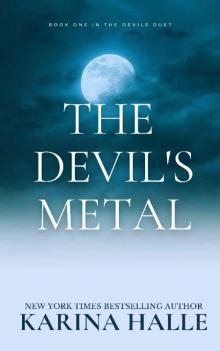 The Devil's Metal: A Rockstar Romance (The Devils Duet Book 1)
The Devil's Metal: A Rockstar Romance (The Devils Duet Book 1)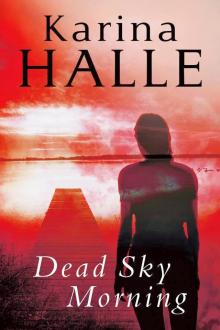 Dead Sky Morning
Dead Sky Morning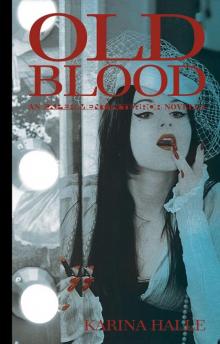 Old Blood - A Novella (Experiment in Terror #5.5)
Old Blood - A Novella (Experiment in Terror #5.5)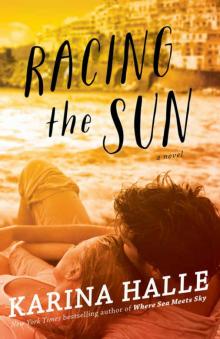 Racing the Sun
Racing the Sun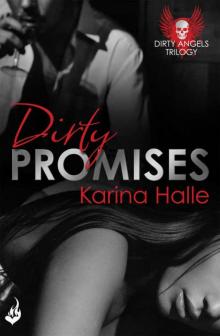 Dirty Promises
Dirty Promises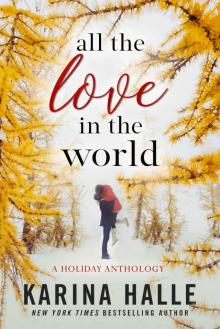 All the Love in the World: A Holiday Anthology
All the Love in the World: A Holiday Anthology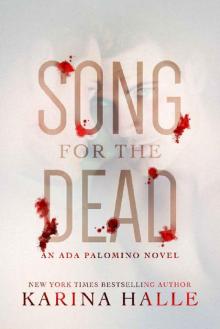 Song for the Dead: An Ada Palomino Novel
Song for the Dead: An Ada Palomino Novel And With Madness Comes the Light
And With Madness Comes the Light After All
After All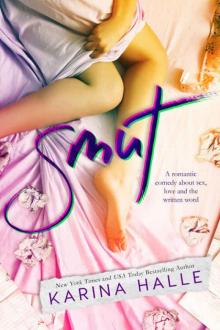 Smut
Smut Dirty Deeds
Dirty Deeds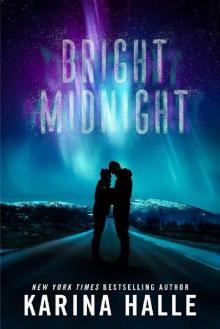 Bright Midnight: A Second-Chance Romance
Bright Midnight: A Second-Chance Romance The Dex-Files
The Dex-Files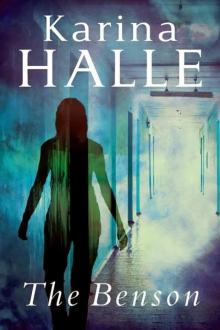 The Benson
The Benson The Offer
The Offer One Hot Italian Summer
One Hot Italian Summer And With Madness Comes the Light (Experiment in Terror #6.5)
And With Madness Comes the Light (Experiment in Terror #6.5)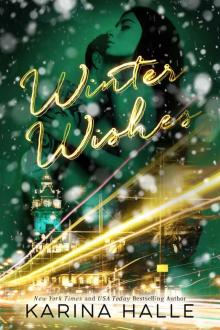 Winter Wishes (The Play #1.5)
Winter Wishes (The Play #1.5) Smut: A Standalone Romantic Comedy
Smut: A Standalone Romantic Comedy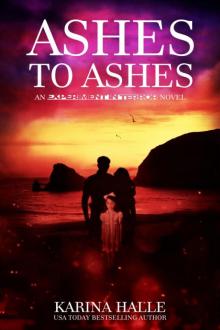 Ashes to Ashes (Experiment in Terror #8)
Ashes to Ashes (Experiment in Terror #8)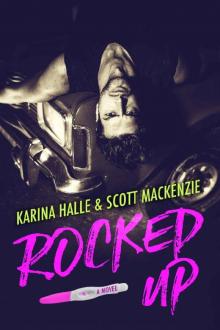 Rocked Up: A Novel
Rocked Up: A Novel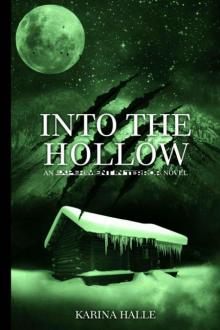 Into the Hollow (Experiment in Terror #6)
Into the Hollow (Experiment in Terror #6) Maverick (North Ridge #2)
Maverick (North Ridge #2)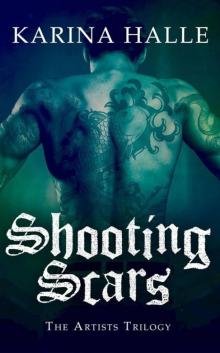 Shooting Scars: The Artists Trilogy 2
Shooting Scars: The Artists Trilogy 2 Nothing Personal: A Standalone Romantic Comedy
Nothing Personal: A Standalone Romantic Comedy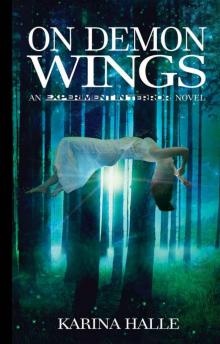 On Demon Wings (Experiment in Terror #5)
On Demon Wings (Experiment in Terror #5)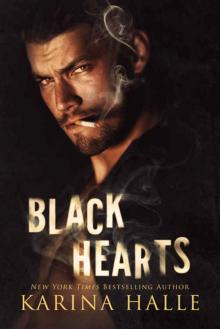 Black Hearts (Sins Duet #1)
Black Hearts (Sins Duet #1) Darkhouse (Experiment in Terror #1)
Darkhouse (Experiment in Terror #1)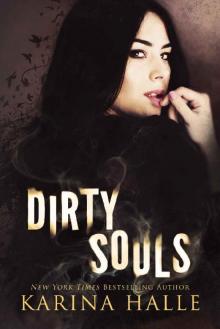 Dirty Souls (Sins Duet Book 2)
Dirty Souls (Sins Duet Book 2)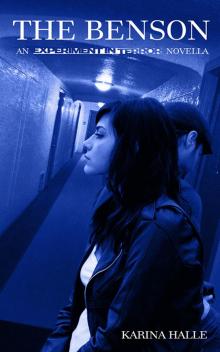 The Benson (Experiment in Terror #2.5)
The Benson (Experiment in Terror #2.5) Hot Shot (North Ridge Book 3)
Hot Shot (North Ridge Book 3)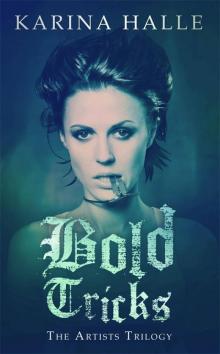 Bold Tricks tat-3
Bold Tricks tat-3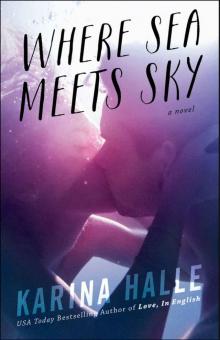 Where Sea Meets Sky: A Novel
Where Sea Meets Sky: A Novel